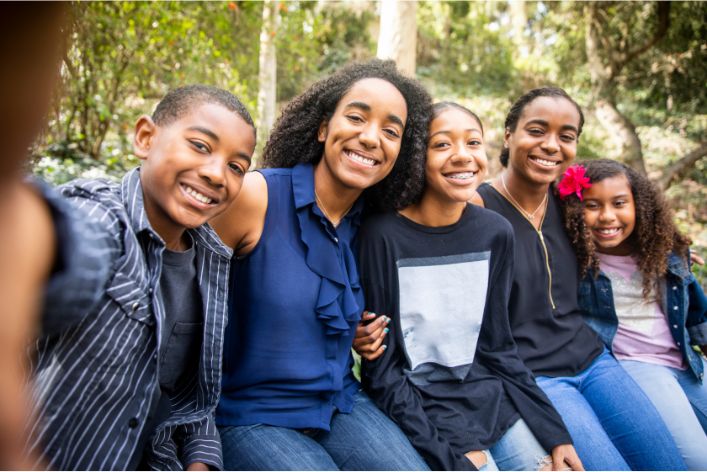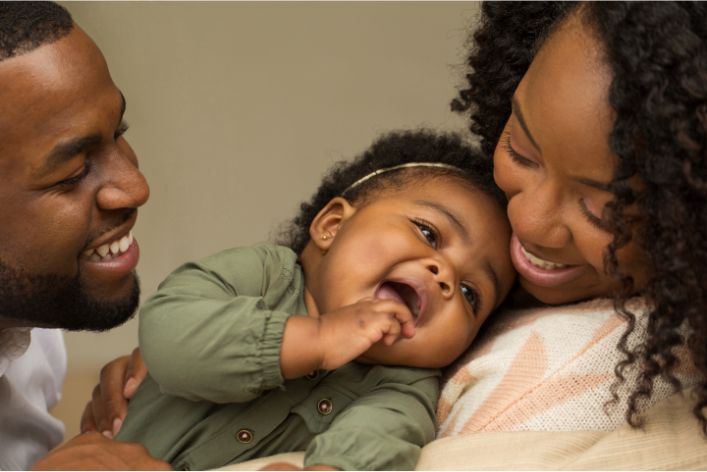Introduction
The Nigerian child is a vital part of the country’s future. Unfortunately, negative behavior is becoming increasingly prevalent among young Nigerians.
It’s important to develop positive behavior at home to ensure a brighter future for Nigerian children.
Positive behavior promotes healthy relationships and enhances self-esteem. Parents must provide a safe and nurturing environment for children, coupled with positive reinforcement and discipline.
Discipline involves setting boundaries, rewarding good behavior and punishing negative behavior. Parents must be consistent in enforcing rules and consequences for breaking them.
Teaching children responsibility and accountability is also essential in promoting positive behavior. Let them take responsibility for their actions and learn from their mistakes. Encourage them to communicate with you effectively.
Parents should also model positive behavior for children. They should express themselves in a respectful and calm manner and avoid aggressive or violent behavior.
Finally, parents should give their children quality time regularly. Engage with them in games, reading, and other activities that promote healthy family relationships.
Therefore, developing positive behavior at home is critical for the Nigerian child’s well-being and development. Parents must provide a supportive environment, model positive behavior, and promote accountability and responsibility.
This training takes time, effort and consistent efforts to ensure that the Nigerian child becomes a positive force to drive the country’s future positively.
Read: Milestones to Watch: The First Five Years of a Nigerian Child
Factors that Influence the Behavior of Nigerian Children
Behavior is an essential part of a child’s development, and it can be influenced by various factors. In Nigeria, several factors can impact the behavior of children, and in this blog, we will discuss some of these factors.
Cultural and Social Norms
Cultural and social norms play a crucial role in shaping the behavior of children in Nigeria. The Nigerian society is deeply rooted in culture and traditions, and these can impact the behavior of a child.
For instance, in some cultures, children are expected to be seen and not heard. This can lead to a lack of confidence and self-esteem in children, as they may feel that their opinions and feelings do not matter.
Furthermore, the Nigerian society places a lot of emphasis on respect for elders, which can sometimes stifle creativity and innovation among children.
Children are often expected to be obedient and compliant, which can hinder their ability to voice their opinions or think critically.
Parenting Made Just for You
Get personalized Parenting Solutions tailored to your child’s needs. Transform your parenting journey with expert guidance in 1-3 days.
Get StartedParenting Styles
The parenting style of a Nigerian parent can have a significant impact on the behavior of a child.
Some Nigerian parents adopt an authoritarian parenting style, which involves strict rules and harsh punishment for disobedience. This can lead to fear and anxiety in children, which can impact their behavior negatively.
On the other hand, some Nigerian parents adopt a permissive parenting style, which involves a lack of rules and boundaries.
This can lead to a lack of discipline and structure in a child’s life, which can impact their behavior negatively as well.
Therefore, it is crucial for Nigerian parents to adopt a balanced parenting style that involves setting reasonable rules and boundaries while providing love, support, and encouragement to their children.
Home Environment
The home environment can also impact the behavior of Nigerian children. A home that is full of chaos, conflict, and negativity can lead to anxiety and stress in children, which can affect their behavior negatively.
Children from such environments may have a hard time focusing, following rules, and interacting positively with others.
Furthermore, parents who are too busy or absent from their children’s lives can also impact the behavior of Nigerian children negatively. Children need their parent’s love, attention, and support to thrive and develop positively.
Peer Pressure
Peer pressure is another factor that can influence the behavior of Nigerian children, especially during adolescence. Children may feel pressured to engage in risky behaviors, such as drug and alcohol abuse, bullying, and sexual activity, to fit in with their peers.
Therefore, parents and caregivers must teach their children resilience, self-esteem, and the ability to resist negative peer pressure.
The behavior of Nigerian children can be influenced by various factors, including cultural and social norms, parenting styles, home environment, and peer pressure.
Parents, caregivers, and society, in general, have a responsibility to create an environment that promotes positive behavior and healthy development for Nigerian children.
Read: Raising Future Leaders: Understanding Nigerian Child Growth
How to develop positive behavior in Nigerian Children
As parents, caregivers, and guardians, it is our responsibility to raise children who will become responsible adults with positive behavior.
Unveil the Perfect Name that Tells Your Family's Story
Let us help you find a name that embodies your family's values, traditions, and dreams. Our personalized consultation weaves cultural insights to create a name that's uniquely yours.
Get StartedThe Nigerian child needs guidance, support, and nurturance to develop positive behavior. Here are some tips on how to achieve this:
Positive Reinforcement
Children need to be rewarded for good behavior. When a child exhibits positive behavior, it is important to acknowledge it and reward them.
This reinforces desirable behavior and encourages repetition of such behavior. Rewards can come in the form of praise, hugs, stickers, or presents.
Clear Expectations and Boundaries
Children need to understand what is expected of them. Parents should consistently communicate clear expectations and boundaries for their behavior. These should be age-appropriate and realistic.
Consistency
Consistency in discipline is crucial. Children thrive in predictability, and this includes the consequences of their actions.
Inconsistent discipline can lead to confusion, frustration, and resentment. Parents should agree on a set of discipline rules and enforce them consistently.
Teaching Empathy and Respect
Parents need to teach children empathy and respect for others. Children should learn to understand and care about the feelings of others.
This can be achieved through storytelling, modeling positive behavior, and exposing children to diverse cultures and experiences.
Encouraging Independence and Responsibility
Children need to learn to take responsibility for their actions. This can be achieved by encouraging independence, decision-making, and problem-solving skills.
Children should be given age-appropriate tasks and responsibilities to help them develop a sense of independence.
Providing a Safe and Supportive Environment
Children need to feel safe and supported. Parents should provide a safe physical environment and emotional support. Children need to feel loved, valued, and respected for positive behavior to emerge.
Developing positive behavior in Nigerian children takes time, patience, and effort. The tips above are a good starting point for caregivers to support the growth and development of positive behavior in children.
Read: Nigeria’s Early Childhood Development: An Overview

Challenges to developing positive behavior in Nigerian Children
Developing positive behavior in Nigerian children is an essential aspect of parenting and child-rearing.
However, it’s not always easy for parents to achieve this goal. There are several challenges that parents face when trying to develop positive behavior in their children.
- Lack of resources: One of the biggest challenges that Nigerian parents face when developing positive behavior in their children is the lack of resources. Many families in Nigeria struggle with poverty, making it difficult for them to afford the necessary resources for their children.
- Lack of time: Another challenge that parents face is a lack of time. Many Nigerian parents work long hours to provide for their families, leaving them with little time to spend with their children.
- Language barriers: Language barriers can also prevent parents from effectively developing positive behavior in their children. In Nigeria, there are hundreds of different languages spoken, making it difficult for parents to communicate effectively with their children.
- Resistance to change: Lastly, some Nigerian children may resist changes in behavior, making it difficult for parents to develop positive behavior in them. This resistance to change can be caused by a variety of factors, including cultural beliefs and societal norms.
Read: Handling Child Misbehavior: A Guide for Nigerian Parents
Tips for developing positive behavior in Nigerian Children
Despite these challenges, it’s still possible for Nigerian parents to develop positive behavior in their children. Here are some tips on how to do so:
- Lead by example: Children often model their behavior after their parents. As such, it’s essential for parents to lead by example and demonstrate positive behavior in their own lives.
- Set clear expectations: Parents should set clear expectations for their children regarding their behavior. This can include things like respecting others and following household rules.
- Communicate effectively: Effective communication is key to developing positive behavior in children. Parents should take the time to communicate with their children, even if they face language barriers.
- Provide a positive environment: Providing a positive environment is critical to developing positive behavior in children. This includes things like providing love and affection and creating a space where children feel safe and supported.
- Implement consequences: Parents should implement consequences for negative behavior to help their children understand the importance of positive behavior. This can include things like time-outs or taking away privileges.
Developing positive behavior in Nigerian children requires effort and dedication on the part of parents.
It’s essential to recognize the challenges that come with this task and take steps to overcome them.
By doing so, parents can help their children develop positive behavior and set them on a path towards success.
Steps parents can take to overcome these challenges
As a Nigerian parent, it is crucial to develop positive behavior in your child from a young age.
However, this task may prove to be challenging at times, especially in today’s modern society. Here are some steps parents can take to overcome these challenges
1. Seek support from community organizations
Parenting can be a lonely journey at times, but it doesn’t have to be. Communities provide an excellent support system for parents who are struggling to develop positive behavior in their children.
By seeking support from community organizations such as parenting groups, churches, or NGOs, parents can connect with like-minded individuals and learn new parenting techniques that can help them overcome their challenges.
2. Identify and prioritize goals
As a parent, it is essential to have a clear understanding of what you want to achieve with regards to your child’s behavior. Identifying and prioritizing these goals will help you focus your efforts on achieving the desired results.
For example, if your goal is to develop positive behavior in your child, you may choose to prioritize attributes such as honesty, kindness, and respect. By prioritizing these attributes, you can tailor your parenting techniques to achieve the desired outcome.
3. Encourage involvement from all family members
Developing positive behavior in children requires a collective effort from all family members. Therefore, it is essential to encourage involvement from all family members in the parenting process.
By involving family members, parents can create a conducive environment where children can learn positive behavior from their family members. As a result, children are more likely to internalize the desired behavior and exhibit it in their daily lives.
4. Use creative and practical solutions
Developing positive behavior in children can be a daunting task, but it doesn’t have to be dull. Parents can use creative and practical solutions to reinforce positive behavior in their children.
For example, parents can create a reward system where children are rewarded for exhibiting positive behavior such as completing chores or helping others. This system is an excellent way to motivate children to exhibit positive behavior regularly.
In summary, developing positive behavior in Nigerian children requires a collective effort from parents, family members, and the community at large.
By seeking support from community organizations, identifying and prioritizing goals, encouraging involvement from all family members, and using creative and practical solutions, parents can overcome the challenges of developing positive behavior in their children.
Conclusion
Teaching positive behavior at home is crucial to the Nigerian child’s development and future success.
It is the responsibility of parents to instill strong values and morals in their children to shape them into responsible, respectful, and productive members of society.
As we have seen, negative behaviors like aggression, disobedience, and disrespect can have lasting effects on a child’s life, leading to poor academic performance, social isolation, and even criminal behavior.
By contrast, children who grow up with positive behavior are more likely to succeed in school, build healthier relationships, and become responsible adults.
So, to all parents out there, I encourage you to take action and make positive behavior a priority in your child’s life.
Set clear and consistent rules, be a positive role model, and provide guidance and support to your children.
With your help, we can create a better future for our children and our country.




